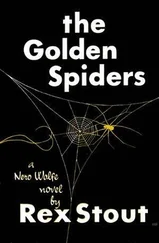Lydia Kiesling - The Golden State
Здесь есть возможность читать онлайн «Lydia Kiesling - The Golden State» весь текст электронной книги совершенно бесплатно (целиком полную версию без сокращений). В некоторых случаях можно слушать аудио, скачать через торрент в формате fb2 и присутствует краткое содержание. Город: New York, Год выпуска: 2018, ISBN: 2018, Издательство: MCD, Жанр: Современная проза, на английском языке. Описание произведения, (предисловие) а так же отзывы посетителей доступны на портале библиотеки ЛибКат.
- Название:The Golden State
- Автор:
- Издательство:MCD
- Жанр:
- Год:2018
- Город:New York
- ISBN:978-0-374-71806-0
- Рейтинг книги:5 / 5. Голосов: 1
-
Избранное:Добавить в избранное
- Отзывы:
-
Ваша оценка:
- 100
- 1
- 2
- 3
- 4
- 5
The Golden State: краткое содержание, описание и аннотация
Предлагаем к чтению аннотацию, описание, краткое содержание или предисловие (зависит от того, что написал сам автор книги «The Golden State»). Если вы не нашли необходимую информацию о книге — напишите в комментариях, мы постараемся отыскать её.
The Golden State — читать онлайн бесплатно полную книгу (весь текст) целиком
Ниже представлен текст книги, разбитый по страницам. Система сохранения места последней прочитанной страницы, позволяет с удобством читать онлайн бесплатно книгу «The Golden State», без необходимости каждый раз заново искать на чём Вы остановились. Поставьте закладку, и сможете в любой момент перейти на страницу, на которой закончили чтение.
Интервал:
Закладка:
I have been thinking yearningly of Elmo who is sometimes utilized at home and how Elmo would really help Honey and me pass the time here and while I know it is wrong for them to look at screens it would just be so nice to set her down and have her stay in one place slack-jawed and not running around rifling through things and I could do something, like answer e-mails on my phone I guess. Get a book from the library and read it. I bite the bullet and purchase two episodes of Sesame Street from Amazon and begin the download and think, just to have them, just in case of emergency.
I open Skype and click and soon Engin’s face appears on the screen and he and Honey become effervescent with joy. There are still tears and red blotches on her face left from the milk conflagration. “My sweet one. Are you helping your mother?” he asks. “Come on, kiss your daddy,” he says, and she kisses her hand and flaps it toward him, and smiles.
I feel like I need to convince him that I am still a functional person so I begin with serious matters. “I have e-mailed the lawyer”—not true but I will—“to ask what we need to do now about the click-of-the-mouse.” I say “click-of-the-mouse” in English, it is now how we define the entire episode: “Engin is not here because of a click-of-the-mouse”; “we are working on my husband’s click-of-the-mouse.” He shrugs and I wonder if this is a bad sign—we’ve both just given up on it ever being resolved, which is probably what the Department of Homeland Security is hoping for, a general degradation of morale resulting in one fewer green card. I ask him what he is doing and he launches into a description of the project he is working on for the other friend who has the agency, not Tolga, and how the ad is in postproduction and while I don’t care I find this somehow comforting, Engin is working, Engin is making money, I am staying home with my child, I am not doing anything wrong, my only responsibility is to my child, this is a globalized world and families don’t always live under the same roof because they have to be where the opportunities are, it’s all normal in the world-historical sense.
“You look beautiful,” Engin tells me, also a lie. This feels like his tentative hand reaching across my back when I’m halfway asleep; thank you Jesus that he is five thousand miles away and I don’t have to have sex, thank you Jesus.
“Seni seviyorum,” I love you , I tell him, one of the first things I learned in Turkish, one of my least favorite things, alliteration only suitable for children, not for romance, to me it feels like you can’t attach weight to a phrase like that. I like seviyorum seni which moves the verb to the front, but this is colloquial; knowing what parts of grammar can be kickily rearranged is part of good style I always think. Spur-of-the-moment I say “I want to come to you,” and he says “Come, then” and then I have to think of all the reasons why it doesn’t make sense to do that and in eight words we’ve moved back to square one.
Ayşe comes over to the screen and I valiantly endeavor to make pleasant chitchat with her and I wonder if she hates me. I wonder this all the time. I mean I assume that she finds me in some respects incorrigibly savage because I don’t wear socks in the house or dry my hair before going outside, but I like to think we get along. Then again the current situation is one to try any mother’s—any grandmother’s—patience.
We click off, and then I hear it. “Seni seviyorum” the crone says. Ever since I started learning Turkish I’m always on high alert for people speaking Turkish, hear Turkish where it is not being spoken, and when it is being spoken put myself as close as I can to the speaker, and yet freeze when it’s my opportunity to speak, instead doing a strange thing where I am silent until the very last minute and then freak everyone out by revealing I understood what they were saying the whole time. Much like this woman has just done to me.
“Merhaba!” I venture to her. “Siz Türk müsünüz?” She just looks at me. “Are you Turkish,” I ask in English. “I went to Turkey with my husband a long time ago,” she says curtly, as if she were not the one who just told a complete stranger I love you in a café.
“Well, that’s quite a memory you’ve got,” I say in the voice I use with all elderly people and the insane. I am deciding whether to stay and draw her out and hear about how friendly the people were etc. but she looks off in the distance and says “I’m sure you want to be on your way” and there’s really no response to that but to say “Well, I guess so. Hope to see you again soon!” and start to roll Honey out and head in the direction of home where we’ll do god knows what for the rest of the day, but before I can put any distance between us she speaks again and says “It was the late 1950s, maybe 1960.” Jesus, I think, because that’s a long time ago, also a weird time, Turkey-wise—coup time, hanging time for what’s-his-name Menderes. I halt the stroller and start scooting it back over to her table, raising my eyebrows to her in an inquiry as to whether our continued presence is welcome or a hindrance. “He used to—my husband—he used to set a little alarm and study Turkish for fifteen minutes at a time,” she says. I lower myself into the empty seat at her table and roll Honey next to me. I’m worried she’ll immediately start freaking out which she sometimes does at the cessation of motion but she is looking very seriously, very gravely, almost the slightest bit skeptically at this new person. It is probably the oldest person she’s ever seen, I think, since Ayşe is under sixty and stunning and grandparents are an extinct species on my side of the family.
“I remember when we went there he was so frustrated that he couldn’t talk to anyone.” She stirs her coffee and sips it. “That’s how I felt the first time I went there too,” I say. I have a curious feeling of both wanting to stay and talk to someone and wanting to leave, because conversations are work and the elderly are work and I’m just not up for work of any kind but then I remember again the extreme quiet of the house and Honey is after all sitting here so rapt. “I remember we went to a mosque in Istanbul,” she says it the American way, IS-tan-bool, instead of the Turkish way, “İ-STAHN-bul,” which I insist on saying now even though it sounds horribly affected when you are speaking English. “He was so excited because the mullah or whatever you call it spoke Arabic, and they could have a nice conversation.”
“Oh,” I say, intrigued. “Is your husband an Arabic speaker?”
“Was,” she says. “He’s gone now.”
“I’m sorry,” I say, and while I’m trying to formulate my next question she begins again. “I remember I was so sick I just wandered off into a corner and drank a yogurt drink a little boy brought me.” She looks at Honey. “I was pregnant, is why.” “Ah,” I say. “Twins,” she says. “Jesus,” I say, my instinctive reaction to the possibility of twins. “That was before I knew it was twins, of course. It took me a long time to get pregnant. Almost ten years.” Like my parents, I think.
“Was your husband American?” I ask. “Oh yes,” she says. I offensively assume she means he was not also an Arab so I ask “Why did he speak Arabic?” I’m always hugely admiring of anyone who can learn Arabic. I studied Modern Standard Arabic for two quarters and really, it’s so hard, but she just says “He needed it for his work” and I hesitate and say “What kind of work did he do?” and she says “Oh, he worked for different places” and it’s such a weird answer that it summons the ghost of my mother who I hear say “Spook” with derisive finality and I almost laugh aloud because it’s such a thing she would say, a judgment delivered upon anyone in an embassy whose role was not clearly defined. I decide not to press.
Читать дальшеИнтервал:
Закладка:
Похожие книги на «The Golden State»
Представляем Вашему вниманию похожие книги на «The Golden State» списком для выбора. Мы отобрали схожую по названию и смыслу литературу в надежде предоставить читателям больше вариантов отыскать новые, интересные, ещё непрочитанные произведения.
Обсуждение, отзывы о книге «The Golden State» и просто собственные мнения читателей. Оставьте ваши комментарии, напишите, что Вы думаете о произведении, его смысле или главных героях. Укажите что конкретно понравилось, а что нет, и почему Вы так считаете.












